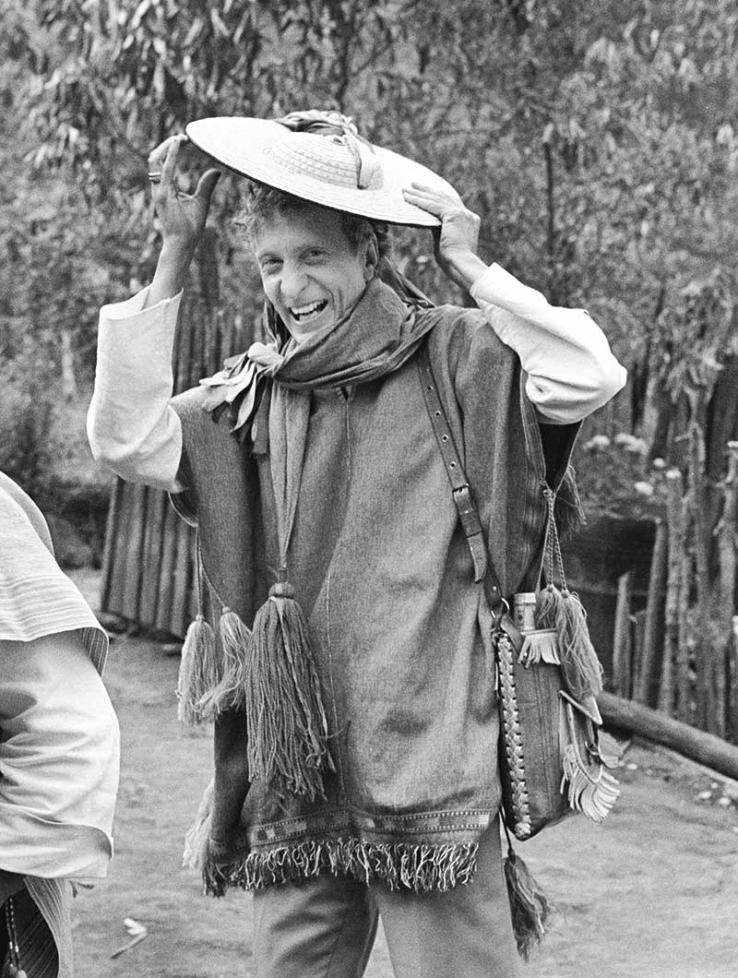May 29, 1934 – May 28, 2020
Anthropologist Robert Laughlin ’56 dedicated his career to studying the mountain-dwelling people of Zinacantán, comprising two dozen Tzotzil-speaking towns in Mexico’s state of Chiapas. Though he was a poet and a champion of the imaginative arts, his legacy resides in lexigraphy, namely, The Great Tzotzil Dictionary of San Lorenzo Zinacantán (1975).
Along with his wife and family, Laughlin split each year between homes in Mexico and Virginia. He came from a family of considerable wealth, but those who knew him always remarked upon his huarache sandals, which he donned regardless of social occasion or climate. “I chalk it up to being Zinacantec down to the soles of his feet,” says Mimi Laughlin, his widow.
After years of compiling folk tales and myths from the people of Zinacantán, Laughlin believed he had encountered about 4,000 new words. In a 2003 interview he recalled that he thought, ‘“I’ll just write a dictionary. It will be easy.’ It took me 14 years!”
Laughlin and two of his most trusted Zinacantec compadres hammered out definitions for a text that would come to include ethnographic context, grammatical rules, and etymology for more than 30,000 Tzotzil (pronounced zot-zil) words. The three worked their way through the language from the ground up, trying out every possible consonant-vowel-consonant root combination until they landed on a recognizable word. When the root words were exhausted, they began again, pairing roots with suffixes and prefixes.
He was “extremely meticulous and complete,” says anthropologist and colleague John Haviland. The team had the patience to work all the way through it ... by which point I think they were all totally sick of it.”
The tome is considered the most comprehensive dictionary of any Indigenous American language — living or dead — ever written. It has led to breakthroughs in understanding Mayan hieroglyphs and is cherished by linguists working in Mayan languages.
Its publication, supported by American taxpayers, was celebrated in Mexico but met with scorn in Washington. Sen. William Proxmire gave the book his “Golden Fleece” award for what he saw as a waste of taxpayer funds.
Laughlin would later publish several collections of folklore and dreams, in both English and their original Tzotzil. He co-authored a book called The Flowering Man (1993) that cataloged Zinacantecs’ sophisticated taxonomic vocabulary for plants, which “defied classical botanical description,” says Haviland.
Laughlin also founded a collective dedicated to Tzotzil literacy and literature called Sna Jtz’ibajom (The Writers’ House) in the mid-1980s; in 2004, the group won Mexico’s National Prize in Sciences and Arts. He also founded a theater troupe.
Upon the announcement of Laughlin’s death in May, from COVID-19, news outlets proclaimed his influence in bringing about a cultural revitalization of the Tzotzil language, which is today spoken by 400,000 people — four times as many as when Laughlin arrived in Chiapas 50 years ago. “Proxmire’s Golden Fleece Award for Bob’s dictionary has ironically come back to mock itself,” says Haviland.
Carrie Compton is associate editor at PAW.



